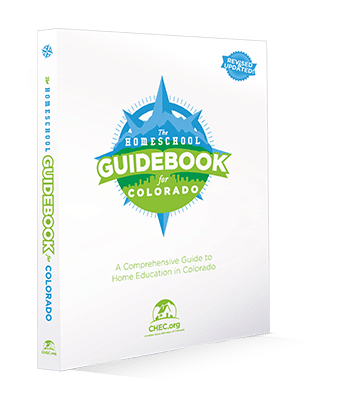By Shari McMinn
And the King will answer them, ‘Truly, I say to you, as you did it to one of the least of these my brothers, you did it to me.’ (Matthew 25:40 ESV)
When we agree to take on the responsibility of parenting and home educating children who are extra special, God will bless our efforts as we seek to trust Him now and for the rest of their lives. It is often an arduous and difficult task, yet caring for the least of these is a most honorable calling. The season of their childhood will pass, and at some point they will likely live to become adults. If your child is significantly delayed cognitively or physically, you will need to face — and plan for — the season when they are adults but still need full-time care. You may be able to be their long-term caregiver in the near future, but what happens to your son or daughter when your time comes to join the Lord in Heaven?
When my husband died unexpectedly and suddenly of a massive heart attack at age 62, I was left a widow at age 55 and still responsible for my five youngest children, all who had “special needs” labels. Thankfully, my husband had a notarized last will which left our joint assets to me. I was able to continue homeschooling my children and eventually took on a work-from-home job to support myself and my children into the future. Now all grown and adulting on their own, my special children can rely on their older siblings for mentorship and a safety net in case something should happen to me.
When I became a single parent, I was forced to think about the future of my youngest children with special needs in case something happened to me. I had to devise a plan for their care, so that the big questions were not left unanswered for when the Lord called me home to Him too. I discussed the future of my youngest children’s adult lives with my oldest children, their siblings, who had by then become adults. We discussed who might be able to care for any of their younger sisters or brothers, as minor dependent children should something happen to me.
Thankfully, a couple of my older children were willing to step in the gap in case of my absence. My own parents were in good health at that time to also be part of the back-up plan. Our decisions needed to be documented, so I spent time updating my will with clear “family instructions” regarding my minor children. Also included were my power of attorney, my medical power of attorney, and a letter of instructions to child welfare personnel should the need arise for them to become involved. These five children were adopted through the state’s department of human services, thus I would be accountable to that agency for their care through their 21st birthdays. At this writing, one is still considered a minor at the age of 20-years-old, so I continue to report to the state for her with annual paperwork.
I encourage you to accept the fact that God numbers your days and they are unknown to you. Please consider the long-term implications of your child with disabilities and their needs and begin to plan for them. Here are a few measures I suggest you take — addressing perhaps one item per month — so that within the coming year you have a wise and caring plan in-place for your child’s future:
- Prayerfully consider and determine what your child’s needs might be as a dependent adult.
- Discuss with family members the reality of your future adult child’s needs and how those might be met.
- If immediate family members are not available to help with your dependent adult child, consider extended family members, close friends, or church elders who are willing and able to provide a support net in your (and your spouse’s) absence.
- Consider what finances will be needed by such a guardian for your child and plan for those.
- Though we often do not want to consider the government as a helper, investigate supplemental social security and other state and federally-funded options for your dependent adult son or daughter’s financial support, living situation, and medical needs.
- Having a will and other documents in place for the long-term provision for your dependent adult son or daughter is a wise and loving thing for him or her and your family. Find a local attorney who can help you navigate the guardianship process; this needs to be completed BEFORE your child turns 18 years old, or your child can overrule your decision by law at that age.
- Day-by-day, begin to talk with your son or daughter about boundaries for personal safety, doing so at their cognitive developmental level. Include such things as handling money, relationship boundaries, swimsuit area private parts, and stranger danger including “yell and tell” strategies.
- Your child might not be able to live independently, but he or she could still possibly work. There are many businesses known to hire adults with special needs. Help your child gain a work ethic through chores at home, then help him or her find and maintain a meaningful job he or she can handle.
- If your child will not be able to drive, help him or her know how to navigate their way to/from work and home by either walking, biking, or on public transportation. Go along with them until the day they can safely try it on their own. Help them know who might be trustworthy to ask for help when they are away from you. Typically, that would be someone in uniform such as firefighters, law enforcement, public transportation operators, or venue security.
- If your child is adopted, consider that their birth parents and any biological siblings they have may try to reunite with them at the age of 18 (or even sooner if they are using social media). You must be wise about whether this would be appropriate or not, coaching your child about boundaries through a series of discussions delving deeper into the subject each time, at your child’s level of understanding. Sometimes, reunification is not healthy for a child and you may need to take legal action (perhaps a restraining order) to protect him or her long-term beyond their own ability to keep themself safe. Be aware that this might cause your child to emotionally struggle more than usual, so be prepared to help your son or daughter cope with this possible ongoing trauma.
If you need additional information on this subject and related topics, the SPED Homeschool website has podcasts and articles such as this one on Planning for the Future of Your Special Needs Child that could further inform your decision making.
Also, this video is worth watching about creating a support net for an adult with developmental disabilities beyond yourself and paid workers.
Need a spring ‘staycation’ in your own home? Be sure to attend our next virtual event from your computer or phone, The Relational Lifestyle Summit, April 8–12, 2024, for practical tips and refreshing encouragement. It’s FREE each day, or you can purchase an affordable all access pass for viewing at your convenience. One of the speakers will be Steve Demme, who founded Demme Learning (Math- and Spelling-U-See) as an outcome of homeschooling his now adult son with Downs Syndrome. Steve currently serves as a board member of SPED Homeschool.
For a fun family vacation this June, be sure to register for the Rocky Mountain Homeschool Conference, so you can attend the Unique Learners Seminar on BONUS DAY Wednesday, June 12th, and/or the Unique Learners track workshops Thursday-Saturday, June 13–15, 2024. There are lots of supervised kids activities to occupy your children while you attend workshops, but they sell out fast so register NOW!
Looking for fellowship with other Unique Learner parents? Join CHEC Outreach Director, Kashia Davis, as she facilitates the “Unique Learner Community Homeschool Resource and Support Meet-up,” 11:30am–12:20pm on Thursday, June 13, 2024, for families just like yours at the RMHC.
My next Unique Learner blog, “The Importance of Like-Minded Fellowship” will post on April 24th (the 4th Wednesday).
P.S. If you have a topic I should write about, please email me with your suggestion(s). This blog is for you!
Shari McMinn, your trusted homeschooling friend






0 Comments